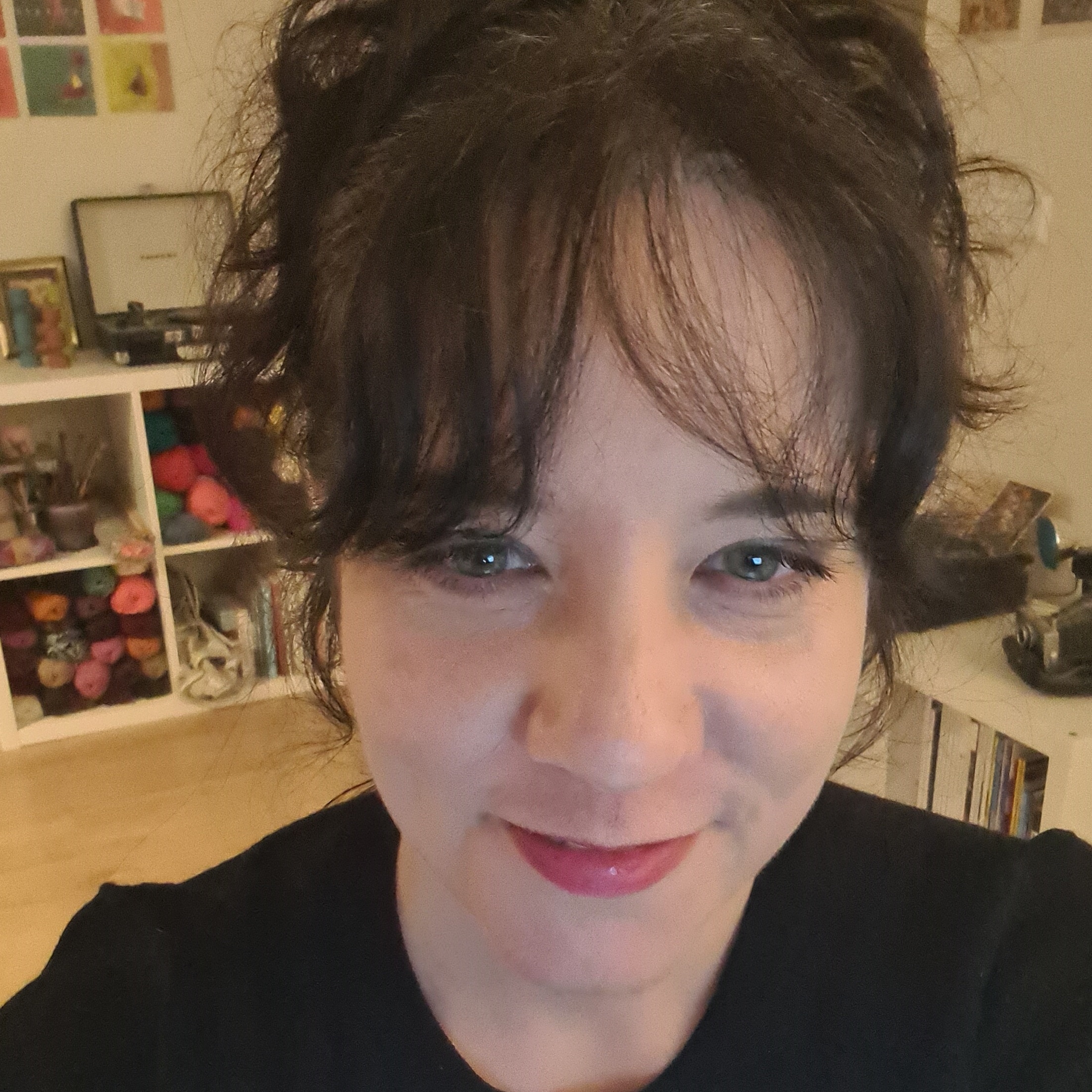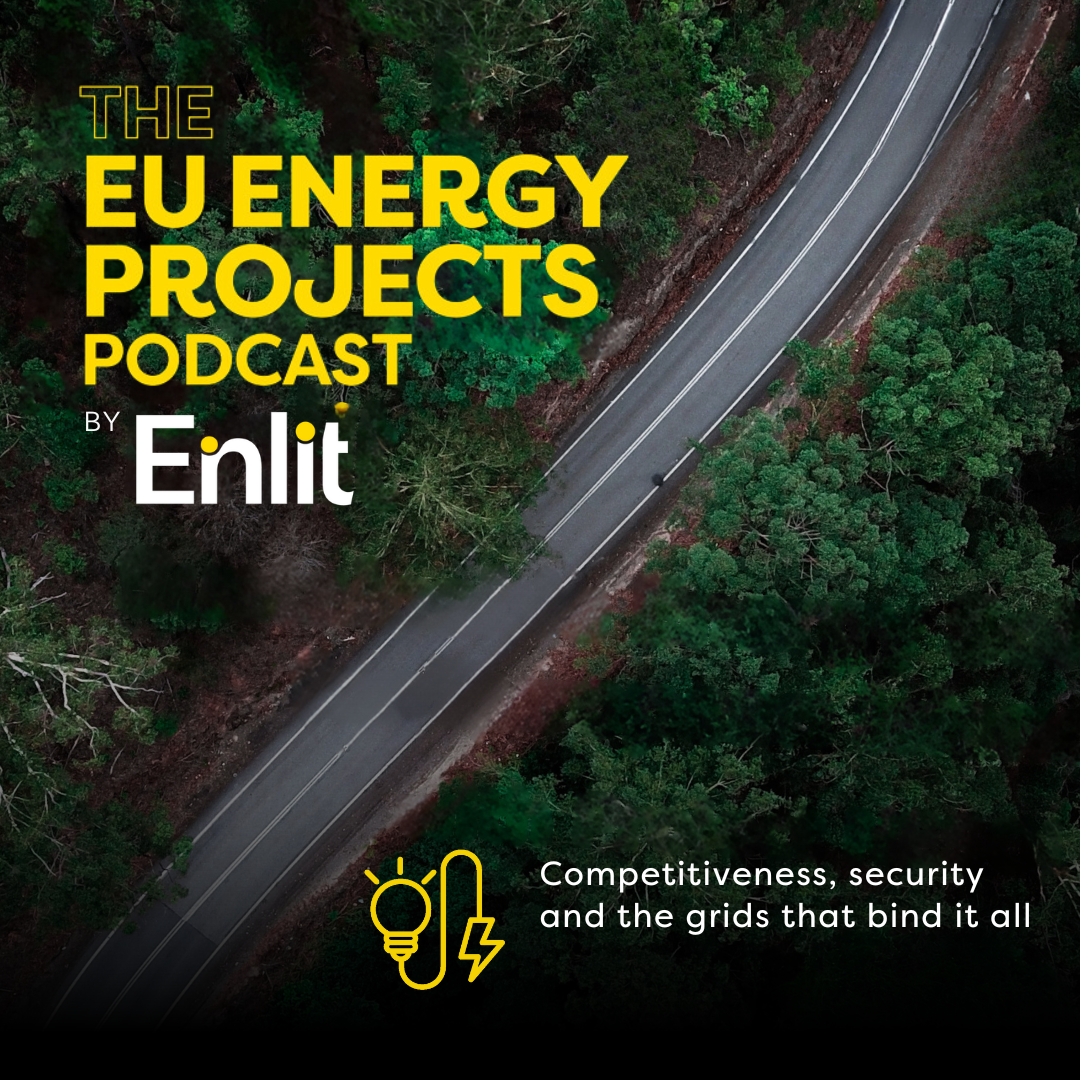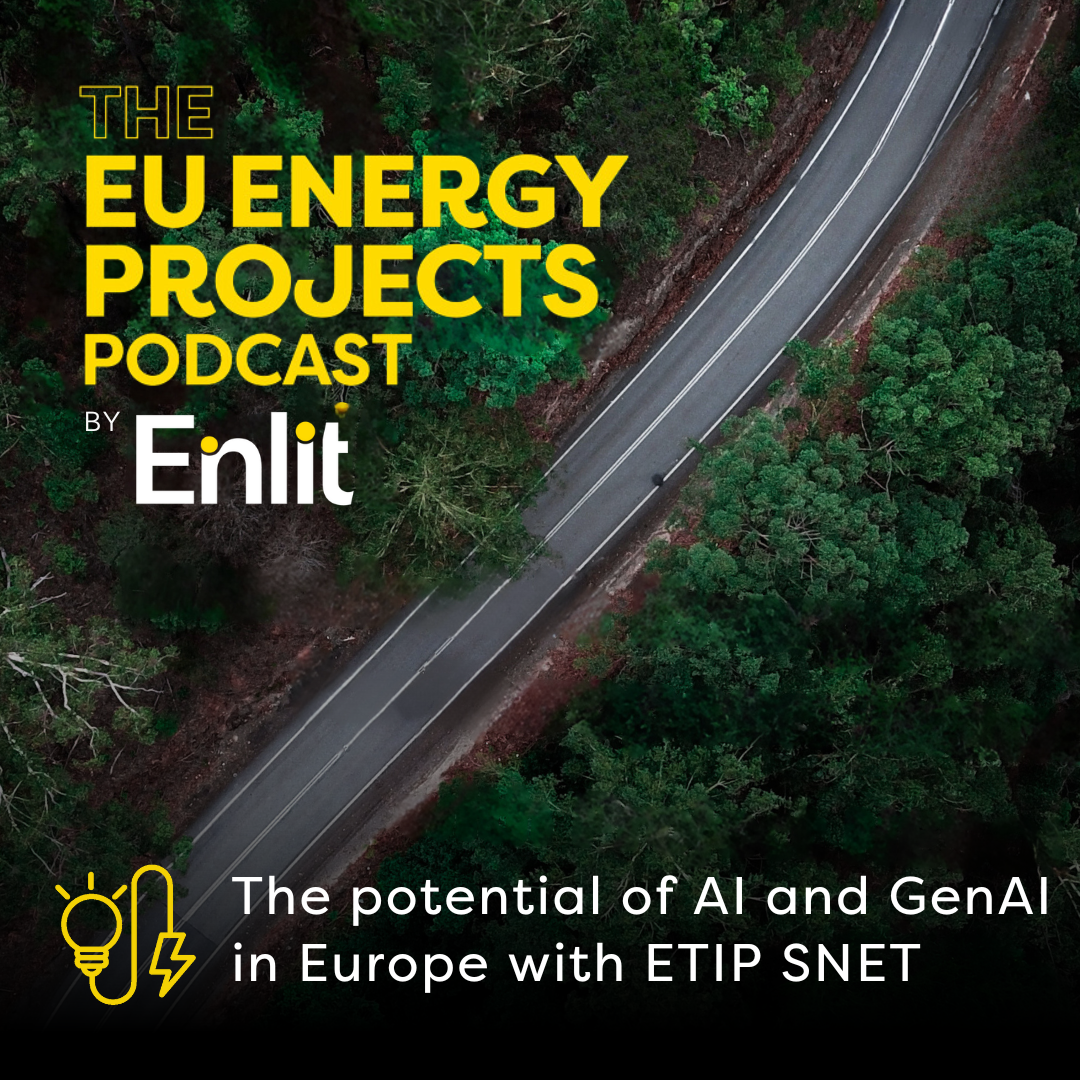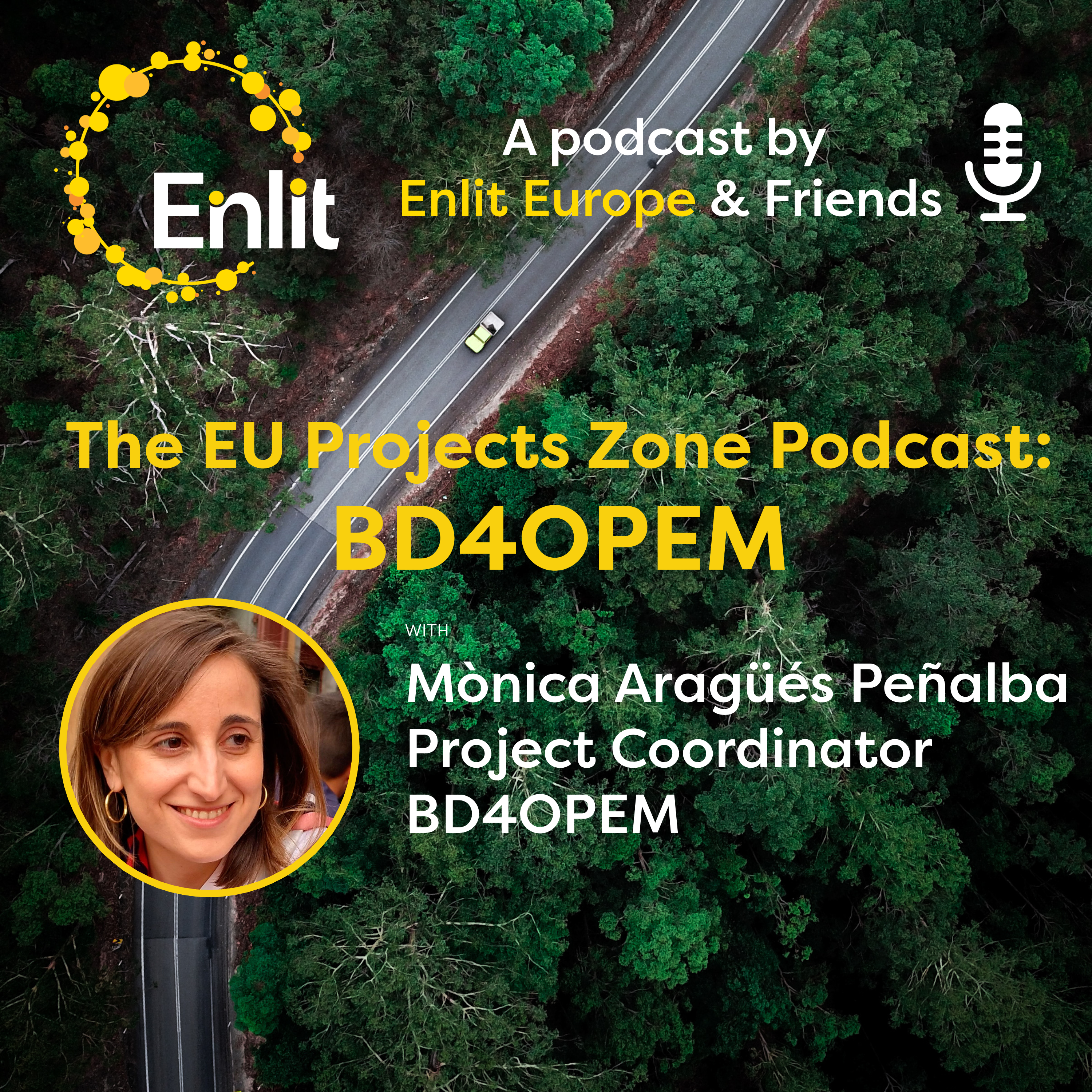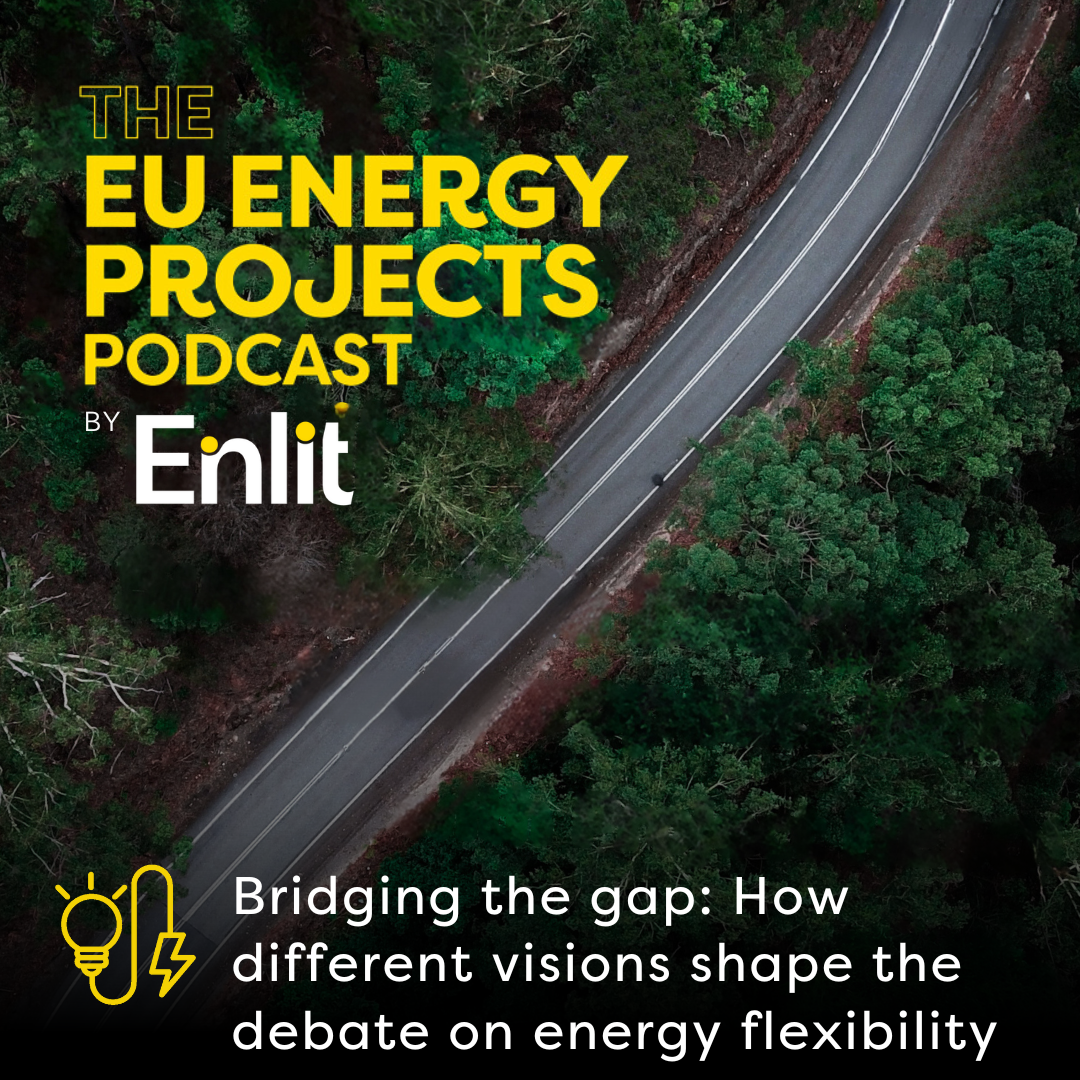Episode Transcript
[00:00:10] Speaker A: Welcome to the EU Energy Projects Podcast, a podcast series from Enlida and France focusing on the clean energy transition for the European Union and the EU Commission funded energy projects that will help us achieve it. My name is Aretid Daradimu. I. I am the editor of the EU Energy Projects Podcast and your host.
Hello everyone. I am joined today by Manuel Galvez, Senior European Affairs Advisor for Elia Group and Vice Convener for policy within SOE's Policy and Communications Group.
Together we'll explore how EU policy, funding and cross border cooperation are shaping Europe's energy transition and the role of TSOs in delivering a secure, sustainable and integrated electricity system.
Manuel, thank you for being here with me today. And let me ask you what is Elia Group's business and how it balances its national role as a TSO with its broader European responsibilities?
[00:01:20] Speaker B: Yeah, many thanks for having me.
And so yeah, Elia Group is an European energy company and so we are active in electricity transmission system operation in two countries. So Elia in Belgium, but also 50 Hz in the northeast of Germany. So we are responsible for of course developing the grid, managing the grids, also balancing the grids 24, 7 of course, and as well as market facilitation beyond of mind is of course a national level because the electricity system is very interconnected. So we also cooperate closely with our neighbor DSOs, also via the European association and SOY in different matters. So this is how we do our business both locally and also at pan European level.
[00:02:07] Speaker A: What would you see as the most important and pressing priorities for EU energy policy in the next five years?
[00:02:14] Speaker B: Well, I think that we have seen that today there's a clear focus on competitiveness and security compared to what we saw a couple of years ago. I think that's because of the recent geopolitical events.
That doesn't mean that the organization is lost and is forgotten, but is today more and more seen as a means to an end, so a means to competitiveness and security for energy. Actually this is very important as energy and affordable energy, but also secure energy in is key to ensure both European competitiveness, but also European security of supply. And so more concretely for the sectors, what we see as priorities and actually that's also very much present in the Commission's agenda is for instance, how to ensure access to affordable grid technologies, also how to accelerate the delivery of grids, also ensuring financing, both pricing private but also a public financing for grids. On the other end we also need to increase electrification, so to be able to channel and to use Optimally, the renewables that are being integrated, we need also to ensure physical and cyber security for the entire energy system. And last but not least, also we think that we need also to eliminate barriers for electricity trading with trusted neighbors, for instance, between the EU and uk.
[00:03:41] Speaker A: You already hinted on the geopolitical, let's say, issues that we're facing nowadays. And I wanted to ask you, given this geopolitical uncertainty, what should be the priorities for the EU to strengthen energy resilience? You mentioned also cybersecurity, which is quite important.
[00:04:03] Speaker B: So perhaps first of all, we believe that Europe should avoid backtracking on their carbonization ambitions, is a means to an end. But also it's important for all the previous ambitions that I was just mentioned. So.
So in particular, in a business that needs a lot of capital investments and has a long term horizon, we believe that we need a stable goals in that term. So that's create a reliable framework for industry to invest.
And so that's very important. So avoid backpack tracking to undercarrolization ambitions. On the other side, of course, that means that Europe needs to continue supporting an increasing deployment of renewables on the one side, but also expand electrification. So you need both sides of the story. And of course you need also the means to interconnect these two aspects. And that's why the importance of investing in electricity grids not only onshore, but also offshore.
And last but not least, of course, we also need to manage more and more external threats. So security is not new for us. We have been managing operational security and as part of our DNA, but we see more and more threats not only on the physical side, but also on the cyber side. And so for this we need a joint cooperation between market actors, grid operators, but also very much authorities, regulators, and also collaboration with other critical sectors, including defense, for instance.
[00:05:37] Speaker A: Yes, to be honest, a few years back I visited tenets, the Dutch TSOs, not offices, but it's working area, let's say the actual area where everything takes place and it was more secure than Fort Knox, I would say it really, really impressed me. And I have no reason to think that other TSOs in Europe, including of course Elia 50 Hz are not the same. But security is one thing. There is also competitiveness that is quite important.
So I wanted to ask you, how do you see the role of electrification and grids to enable competitiveness of the European industry?
[00:06:16] Speaker B: Indeed, so that was mentioned. So decolonization is not forgotten. This is a means to an end, to achieve both competitive and security supply. So if we are developing more and more homegrown renewables, just as a step to achieve a bit more European independence.
We need also the means to use efficiency, those kind of energies. So, and that's why electrification brings an important role. We know that not all the energy man will be electrified, but a very important part of it. So in transport, for instance, there are a lot of advancements via EVs, not only for public, but also private aspects. We have also many industrial processes that can be electrified. And so I believe that this is something that we're.
There should be a bit more support, but also we need again to invest in electricity grids. Also we need to invest in digital infrastructure. So in order for this electrification to absorb as much as possible the renewable energies, we need also that a good part of the demand to be flexible, meaning be able to respond to price signals, but also to contribute to the stability of the energy system.
So that's a bit very important. And of course, again, grids at this DSO level, but also transmission level, but offshore as well as interconnectors will help channeling the renewables, connecting with the band centers and make efficient use of it.
[00:07:46] Speaker A: There is also the grids package that the European Commission will publish, as they say, before the end of this year. Even if it takes a little bit more, it should be in the close future.
So what do you see as the priorities in order to accelerate the delivery of electricity grids? Something that is very important and nowhere near finished.
[00:08:10] Speaker B: No, definitely. I think that if we see the numbers both at DSO and DSO level, we are talking at hundreds of billions of investment in the next five to 10 years. So what we believe is that this package is really focused on the delivery and simplification of the frameworks. So this should be for us, the main points. And I hope that the Commission goes in that direction with their proposal. And so we see four main points within those.
On the one side, of course, in terms of planning, what we believe is that we should foster more regional coordination and cooperation. A lot of projects are really well identified, but there is a really a delay in the implementation of those projects. And so agreeing project by project sometimes is very difficult. We don't see the complete picture, but we have a better regional collaboration, not only for onshore, but in particular for offshore grids. I think this can help to put all the different actors together, technical actors such as DSOs, but also member states and regulatory authorities to find solutions, how to share costs, what needs to be invested and how fast. So actually, from Melia Group, we are active in Collaboration called offshore TSO collaboration. So where we bring our technical views to decision makers and we hope that this can help making, let's say, conscious and informed decisions. So that's one important point, of course I mentioned again need to unlock private and public financing in particular, for instance, with calling about the CFE funding. But happy to discuss a bit later on streamlining permitting. I think this is very important as well for us, not only for us as dso, but also I think at DSO level and perhaps two big points as well is we need to provide attention to supply chain of grid technologies. We have really as DSOs, we mainly source actually from Europe. So it's not really an issue of a lack of competitiveness or that other manufacturers are invading the market. Actually it's European technology, but of course it's not only required by European TSOs, it's also required by international TSOs. And so on top of increasing capacity, of maintaining capacity, what we believe is also important to really streamline and allow it more flexibility in terms of procurement. And of course, last but not least, I think that the topic of grid connections is very hot, is very important. We see not only in some parts a lack of capacity, but also a lot of queues for accessing the grid. And there I think we believe that the Commission guidance on grid connections is really important to allow and to give a bit of direction on how member states and regulatory authorities could use the existing provisions to adapt, for instance, to a more prioritized approach, a more precious approach in terms of, for instance, what are the scenarios in network plans, but also in the maturity of the projects.
[00:11:22] Speaker A: Hello everyone. Areti here. I would like to personally invite you to discover the EU project Zone at Enlit Europe 2025 in Bilbao. Our event takes place from the 18th to the 20th of November.
Come say hi to me at the EU Project Zone.
Manuela would like you to put your ANCHOE hat on now and tell me how does Anchoe's 10 year network development plan influence funding decisions and EU political priorities?
[00:11:57] Speaker B: If it does, it's an important part of the process. So the TYNDP is developed by nzoa, of course, in collaboration with all the other associations, NSOG for Gas, but also in the future with the European association for Network Operator for Hydrogen. So these are joint collaboration in different phases for developing scenarios for identifying later on by sector the needs, but also to look at what are the cross sector needs between the different sectors. But that's what it do, it's identification of needs and then those needs are matched with the projects of project developers that can be TSOs, can be storage operators, etc. So there are this a bit what this does. But of course, in order to get access to funding such as cfe, you need to get a label. And so this is the label of project of common interest if it's between member states or projects of mutual interest, if it involves also a third country, for instance the uk. And so this is very important in the process. So in terms of identification of needs, in terms of matching projects with needs, and also to see which of those projects need financing. And so this is very important and actually access to funding such as CFE is very important in an environment with increasing needs for projects, in an environment where there's a lot of attention to costs of the projects. And so having European funding, but also national funding of course will help mitigating of course, the impact of those projects in the budgets of, of companies, but also in the tariff that everybody is paying.
[00:13:34] Speaker A: Yet, going back to projects of common interest, how important are they and how are they positioned in ensuring that Europe meets its decarbonization and security of supply goals?
[00:13:47] Speaker B: Yeah, yeah, they're very important because in the end we know that the dynamics is that renewal generation is not really developed very close to site. So you need, you have renewables in offshore grids, you have sun, a lot of sun in Spain, in close to Mediterranean. So we need to channel those energies. And so the project of common interest and mutual interest, which is not only interconnectors, they're also internal lines in the backbone that help increasing the flows and help increasing the transfer of this electricity towards the man center. So this is, they play a very important role in connecting supply and demand. And actually if we are talking about competitiveness, it's very important so companies, industries can source not only available renewable, but also affordable renewables beyond for instance, the borders.
[00:14:38] Speaker A: You mentioned interconnectors. And I was thinking that the eu, the commission emphasizes interconnection and cross border projects. Where are we making, let's say, the fastest progress? And where do you see bottlenecks?
[00:14:52] Speaker B: We don't see a lack of identification of needs. The Tyndp actually in the previous edition, 2024 provides already a lot of investment needs, a lot of investment needs. The problem is how to match those needs with real projects and all the decision making to realize them. So there is what we see a bit of bottleneck. It's in the really the bridging needs with projects, the political decision to make them happen. Because many of these projects implicate and also have impact beyond the countries that are hosting us. So I need to be costing A and B can have an impact and benefits of course with other countries. So this is where I believe is one of the bottlenecks. So really agreeing on cost sharing, but also benefit sharing of these projects. And of course on top of that, as mentioned, we need to find financing. Also we need to streamline permitting. We have cases where a project takes perhaps two, three years to be really constructed, but it takes six, seven years just to go through all the processes of permitting at different levels. And so that's I think something that we expect and hope that the grid package can help.
[00:16:05] Speaker A: Yes, because 10 years for just for something that should happen way earlier and it's absolutely needed are perhaps a lot and especially if we see how things are happening in China, in the US and et cetera. But speaking in general about the market, the EU electricity market, how do you see it evolving and what are the upcoming, let's say EU policy rules, regulations files that will shape the discussion around markets.
[00:16:34] Speaker B: So perhaps looking back, there was a lot of an important revision of markets in the last few years. So for instance the clean energy package already back in 2020, 2019, so that's already revamped the RUL and main legislations for LXT markets. Then after the crisis of course in 2022, there was targeted updates via the so called elect market design reform. And so there are already important rules not only to support for instance renewables, to support capacity, backup capacity, to also to unlock flexibility from different areas, also to improve the functional market. So what we believe is that on the one hand there's now the time for member state of course to transpose and implement those rules.
Of course there are some implementation still files that are ongoing. So you have for instance the development or update of new network codes or guidelines which are ongoing. And there what we believe is that the focus should be really on technical improvements. So really to improve on the technical level, how can we improve the markets and market integration, access and competition for service, et cetera.
And this is not really the place to for instance introduce changes in governance roles and responsibilities, which should have its place of course in the political debate, but in the update of the main legislation. So that's kind of in the future, in the next step, for instance, actually we're very curious to see what the European Commission will publish in the announced white paper on deeper electricity market integration. So this is a white paper that was announced already, I believe, in the Action Plan for Affordable Energy early this year.
And so yeah, we are really curious to see what are the Commission ideas into improving the function of the markets and how these ideas will also influence the adaptation of of the electricity legislation in the next years.
[00:18:44] Speaker A: Speaking of funding, that is also very important topic for projects for the energy transition for Europe. Which of the EU Commission funding mechanisms like for example cef, Horizon Europe, et cetera, are proving most effective in supporting large scale energy infrastructure?
[00:19:03] Speaker B: I would say the bread and butter of the funding for large scale infrastructure would be cef, SAF Energy. Those are the. And the focus there is on cross border energy infrastructure, of course not only electricity grids, let's face it. So it's also some gas, some hydrogen, some CO2 and so there's different energy carriers that can access to that. So that's the main, the main point. Horizon Europe is more for research innovation also first of a kind demonstration. So it helps to bridge the gaps. But it's not really the focus of our ISON Europe to to develop large scale infrastructure. Innovation Fund is really interesting because originally and I think on the current edition it was mainly focused on new technologies, the carbon dioshock of industry.
Because of the political discussions, Hydrogen was included, I think even support for wind manufacturing. And so perhaps again it's an idea could or should Innovation Fund also be used, or at least a part of it to support not only grid technology but some of the grid projects?
On the other hand, I think we see also good evolutions in what the Commission has proposed as part of the multiannual financing framework in terms of the expansion of the budget of CFE at least fivefold.
[00:20:19] Speaker A: And where do you see the financing gaps? Where could EU policy for example, do better address these gaps? Solve the issues?
[00:20:29] Speaker B: Yeah, so there are different points. So indeed so I was mentioning before. So European funding is very key. CFE in the last multi NL framework it didn't actually increase the budget. So actually it was stayed the same and many other technologies had to compete for that. So in that sense I think we need to increase this budget. And there's where I was mentioning, there's a good proposal by the Commission increasing fivefold the amount of CFE compared to the previous current story financial framework. And we hope that it stays that way because in the end it's a negotiation between member states. But at least the direction is very good. There is also good for instance in terms of new funding instruments that have been proposed, for instance a called competitive fund which will also include funding for what they call local transmission distribution grids. So not only Cross border, which should be taken care by cef. But also some of the more distribution and transmission projects.
Again, as mentioned, we believe that innovation project could be also cater to some of the needs at grid level, either in the supply chain, but also perhaps in some demonstrations. But that's part of the story. So funding is part of the story. On the other side, you need also a lot of private capital.
You need stakeholders, not only public, but also private stakeholders. Big tickets that need to put money. And for that you need to incentivize to invest in asset that will be there for next 30, 40 years. So there you need really an attractive regulatory investment.
So these private funds, private companies, Even for some TSOs or grid operators that are in stock markets that you and me can also invest in those. So you need a stable regulatory framework. But also the Commission, I think can also help their via for instance risking instruments. So you reduce for instance the cost of loans that grid operators need to do vis a vis private banks. So there, for instance, you could have a role for European investment bank, but also national development banks.
[00:22:40] Speaker A: It's the same for the support of the digitalization of the grid, because funding is needed there too, right?
[00:22:46] Speaker B: Yeah, definitely. So I was mentioned, I think before is not only putting copper or wires, it's also putting the needed digital infrastructure. And it goes from digital connectivity, of course, also digital capabilities to process a large amount of data that will come. But that's only at our level. If we go even deeper in the value chain, if we want to really unlock flexibility. What we need is also to invest and increase the pace, for instance, in the installation of smart meters. We need to also to give access to data, add a smart meter, but also behind the meter in order to really incentivize competition for services. And this requires money. We know that in the past CEPH was also dedicated to digital infrastructure. According to the new Commission proposal. I think that digitalization will go more in other type of funds. And so we believe that this is very important. So digital infrastructure, digital connectivity capabilities to process, but also we need secure capabilities. We know that I was mentioning before that security in particular cyber security is becoming a more and more attention point for for grid operators, but also actors in the value chain. And so also investing in CyberSecurity capabilities in AI, digital twins. I think these should be also part of the funding. And I think there's already actions that the Commission is taking. But we believe that the level of expectation and of course the level of investments and therefore funding will only increase in the next few years.
[00:24:17] Speaker A: You mentioned infrastructure, and I have discussed with many people that represent projects that are focusing on infrastructure, and they were telling me that this kind of projects often face resistance, especially from the public. How do you think policy and funding frameworks can support greater social acceptance? How can we let the people know that these projects are to their benefit?
[00:24:43] Speaker B: Yeah, we'd say one part of the story is of course, the good communication. So often decolonization has been and still being linked with a lot of upfront cost, which is the case. So to decarbonize the system, you need upfront cost in renewables, in grids, in electrification. So there's a need. So definitely. So the second, of course is permitting, as I mentioned. So investment in capabilities in communication, I think is very important during the permitting process. So to go to the local communities, to the zones where there will be development, so to really try to onboard the residents or the people that are on the irs. So that's also part of where the policy can help. And so I think that can be part of the story behind the grid package. On the other hand, also I can also make the link with the previous topic on financing. So if we have big investments, if part of that investment can be taken by European funding, that also helps reducing the costs that are borne by citizens. If we can increase manufacturing capacities and decrease the difficulties to access those capacities via procurement, that we also traduce in, at least in affordable network charges. So that's part of the story. Of course, we can go beyond that as well. For instance, the electricity bill has a lot of taxes and levies. That has nothing to do with electricity. So how can this be phased out or put in another packaging not in the budget of electricity bills for companies and for citizens. So it's not really one single bullet solution. There are different solutions. Communication, permitting, funding. I think those are part of solutions to help reducing, I would say, the social acceptance.
[00:26:40] Speaker A: I agree with everything you say, but having done this job for almost a decade now focusing on energy, I think that a nice robust marketing campaign on behalf of the European Commission should be priority number one. Because a lot of good things are happening and I fear that the public doesn't know it. And of course podcast podcasts like this one and platforms like Enlit World are helping towards that direction, if I may say so myself.
Now, as we are approaching the end of our discussion, Manuel, I would like to ask you to tell me if you could change only one aspect of the EU funding policy to better support the energy transition, what would that be?
[00:27:26] Speaker B: I would say it's also linked with the way we want to manage the energy transition. I think it's also a lot of prioritization.
So we know that we have different paths to reach the transition. We have some technologies that are more mature than others. And so for us, I think this is very much important when the Commission will give access to the current funding, also the future funding. So really mature technologies, such great technologies are needed.
They will unlock different parts of value chain, not only in terms of direct electrification, but also indirect electrification if we want to go. And to produce hydrogen from green or low carbon sources, you need access to vast amounts of electricity, affordable electricity. So in the end for me I would say pre ties in function of needs, in function of maturity. I think that could be, I would say one of the ideas to improve and to defunding policy makes total sense.
[00:28:28] Speaker A: Manuel, thank you very much for this interesting conversation.
[00:28:32] Speaker B: Many thanks for your invitation and happy to continue the discussion.
[00:28:36] Speaker A: You've been listening to the EU Energy Projects Podcast, a podcast brought to you by Enlit and Friends. You can find us on Spotify, Apple and the Enlit World website.
Just hit subscribe and you can access our other episodes too. I'm a Lady Darren, thank you for joining us.
